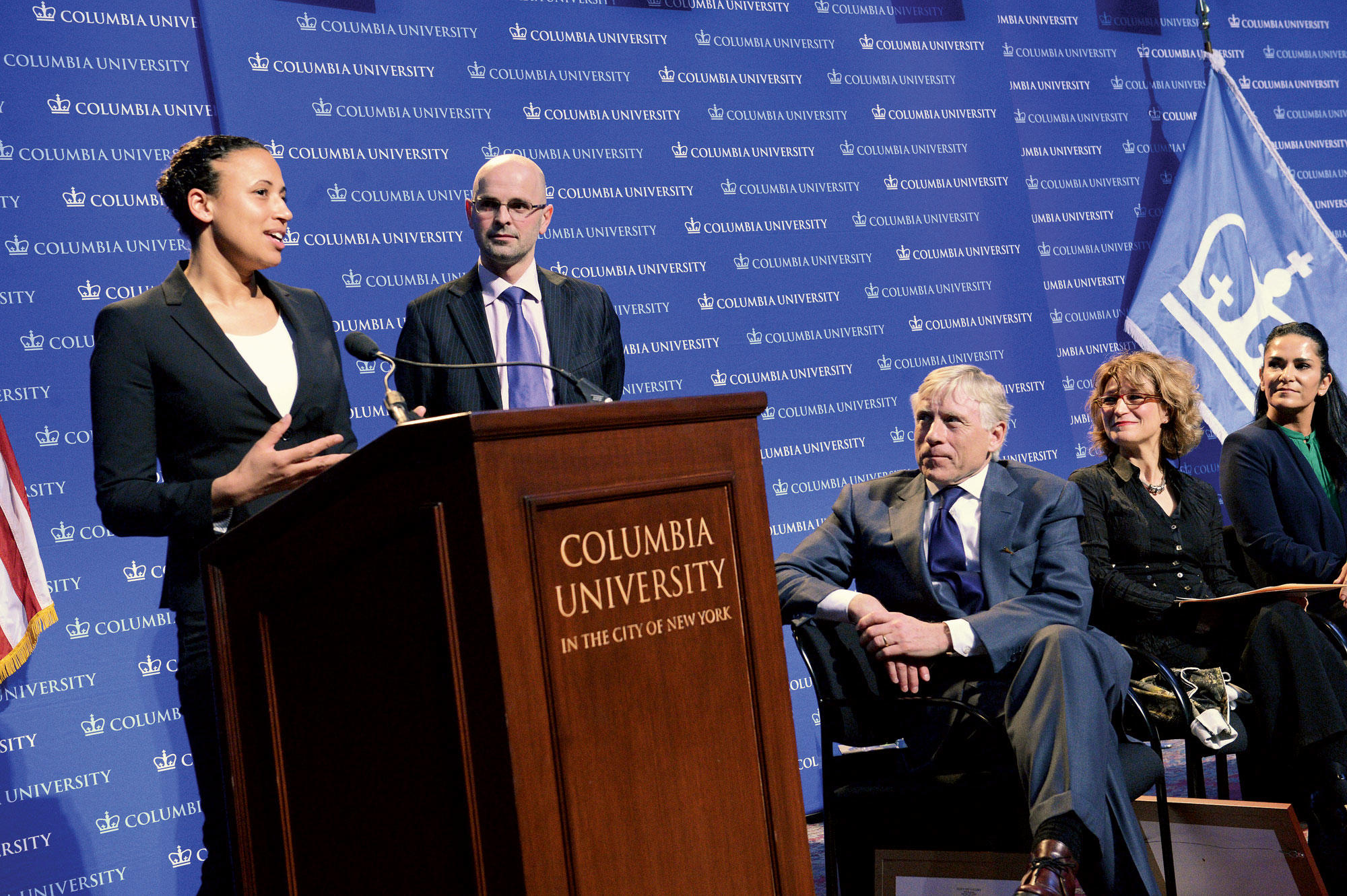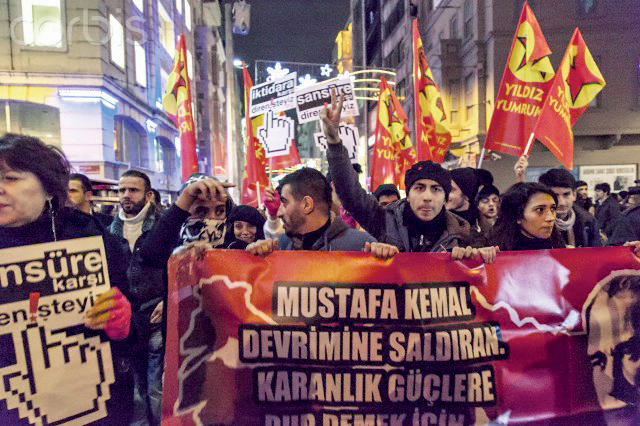The eleven judges who sit on the Constitutional Court of Turkey found themselves in the international spotlight last year after the Turkish government tightened its grip on the Internet. Free-speech advocates around the world waited anxiously to see if the judges would side with prime minister Recep Tayyip Erdogan and his allies, whose government had banned Twitter and YouTube for hosting leaked recordings of officials purportedly engaging in corruption.
Instead, the judges ruled unequivocally against the government. They overturned the bans, and, in a related case, found that the government lacked the authority to block websites or keep track of Internet users’ activity without first obtaining court orders. In lifting the Twitter ban, the judges called the government’s actions “illegal, arbitrary, and a serious restriction on the right to obtain information.”
For these decisions, the Constitutional Court of Turkey was recently awarded the Columbia Global Freedom of Expression Prize, a new honor the University is bestowing upon jurists, lawyers, and activists whose actions strengthen international norms of free speech. The two other recipients of the inaugural prizes are the Constitutional Court of Zimbabwe and the nonprofit Media Legal Defence Initiative.
“Judges and lawyers around the world routinely display great courage by standing firm in their commitment to free expression and the open sharing of information, often under harsh attacks against their independence,” said President Lee C. Bollinger in announcing the awards. “These individuals are creating a new set of global legal standards essential for safeguarding speech and the press in our modern society.”
The prizes were given March 11, at the close of a two-day conference hosted by Columbia’s Global Freedom of Expression and Information initiative, a new University wide effort that promotes faculty and student research on free-speech laws around the world. The conference saw eighty prominent judges, attorneys, human-rights activists, and legal scholars from twenty nations come to Columbia to discuss recent trends in freedom of expression. A recurring theme in their talks was that wider recognition of international legal standards for protecting free speech — such as stated in Article 19 of the UN’s Universal Declaration of Human Rights — is likely to occur as the world becomes more interconnected economically and culturally.
Agnes Calamari, a prominent human-rights activist and scholar whom Bollinger recruited to direct the new initiative, said to those in attendance, “I think your work demonstrates that the world has a common language when it deals with freedom of expression. Yes, the standards are disputed, but they are known, and they are relied upon by journalists, by activists, and increasingly by judges and lawyers.”
In Turkey, this was evident when judges on the constitutional court, in their decisions involving the government’s Internet restrictions, quoted extensively from the European Court of Human Rights. “These decisions took courage and helped preserve for the people of Turkey their last bastion of independent information,” said Joel Simon, executive director of the US-based nonprofit the Committee to Protect Journalists, who nominated the court for the award.
Similarly, the Constitutional Court of Zimbabwe was recognized for adhering to international legal norms in overturning the criminal convictions of two newspaper journalists who had been found guilty of defaming a member of Zimbabwe’s ruling political party. The journalists had reported that a hospital run by this official, Munyaradzi Kereke, was mismanaged; Kereke claimed they got their facts wrong. The high-court judges concluded that the journalists, regardless of any mistakes they may have made, should not have been charged with crimes, because defamation is a matter for civil courts; allowing criminal charges against journalists in such cases, they said, would silence journalists generally.
“In a country that has suffered from state-sanctioned attacks on the media, arbitrary arrests of journalists, and forced closures of newsrooms, this judgment for Zimbabweans cannot be overestimated,” said Dario Milo, a South African attorney and legal scholar who nominated the court for the award.
Another prize went to the London-based nonprofit the Media Legal Defence Initiative (MLDI) for defending a journalist charged with criminal defamation in Burkina Faso. Lohé Issa Konaté, editor of the newspaper L’Ouragan, was imprisoned for one year after publishing a story accusing a prosecutor of corruption. When the African Court on Human and Peoples’ Rights reviewed the case last summer, MLDI petitioned the court to rule in accordance with free-speech precedents established by the European and inter-American human-rights courts; the African court did so, directing the government of Burkina Faso to reform its criminal-defamation laws. The ruling was the African Court’s first in a free-speech case and is expected to be widely influential, as it provides a new interpretation of the human-rights charter ratified by thirty-six African countries.
“I hope this judgment is a starting point,” said Nani Jansen ’06LAW, legal director for MLDI, who was on hand to accept the award. “I think it underlines that the African Court is a tribunal that has enormous potential for being a progressive human-rights court.”




